 W
WBoris Blacher was a German composer and librettist.
 W
WEugen Berthold Friedrich Brecht, known professionally as Bertolt Brecht, was a German theatre practitioner, playwright, and poet. Coming of age during the Weimar Republic, he had his first successes as a playwright in Munich and moved to Berlin in 1924, where he wrote The Threepenny Opera with Kurt Weill and began a lifelong collaboration with the composer Hanns Eisler. Immersed in Marxist thought during this period, he wrote didactic Lehrstücke and became a leading theoretician of epic theatre and the so-called V-effect.
 W
WHelmina von Chézy, née Wilhelmine Christiane von Klencke, was a German journalist, poet and playwright. She is known for writing the libretto for Carl Maria von Weber's opera Euryanthe (1823) and the play Rosamunde, for which Franz Schubert composed incidental music.
 W
WConstantin Christian Dedekind was a German poet, dramatist, librettist, composer and bass singer of the Baroque era.
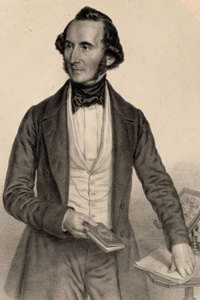 W
W(Philipp) Eduard Devrient was a German baritone, librettist, playwright, actor, theatre director, and theatre reformer and historian.
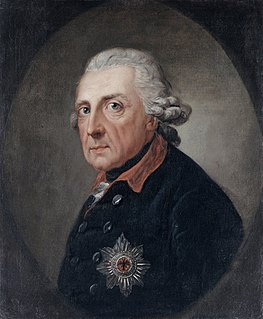 W
WFrederick II was a Prussian king and military leader who ruled the Kingdom of Prussia from 1740 until 1786, the longest reign of any Hohenzollern king at 46 years. His most significant accomplishments during his reign included his reorganization of Prussian armies, his military successes in the Silesian wars and the Partitions of Poland, and his patronage of the arts and the Enlightenment. Frederick was the last Hohenzollern monarch titled King in Prussia and declared himself King of Prussia after annexing over some territories of the Polish-Lithuanian Commonwealth in 1772. Prussia greatly increased its territories and became a leading military power in Europe under his rule. He became known as Frederick the Great and was nicknamed "Der Alte Fritz" by the Prussian people and eventually the rest of Germany.
 W
WNora-Eugenie Gomringer is a German and Swiss poet and writer. She won the 2013 Literaturpreis des Kulturkreises der deutschen Wirtschaft and the 2015 Ingeborg-Bachmann-Preis
 W
WDavid Elias Heidenreich was a German poet, dramatist, librettist and translator of the Baroque era.
 W
WFriedrich Carl Georg Kaiser, called Georg Kaiser, was a German dramatist.
 W
WJohann Friedrich Kind was a German dramatist, most famous for writing the libretto for Carl Maria von Weber's opera Der Freischütz (1821).
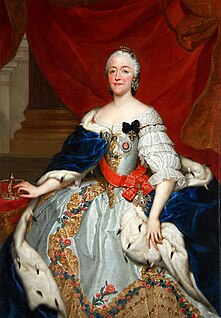 W
WMaria Antonia, Princess of Bavaria, Electress of Saxony was a German princess, composer, singer, harpsichordist and patron, known particularly for her operas Il trionfo della fedeltà and Talestri, regina delle amazoni. She was also the Regent of Saxony in 1763-1768. Baptised Maria Antonia Walpurgis Symphorosa, she was known as Maria Antonia.
 W
WAlexander Sascha Ritter was a German composer and violinist. He wrote two operas - Der faule Hans and Wem die Krone?, a few songs, a symphonic waltz and two symphonic fantasias. Ritter died in Munich.
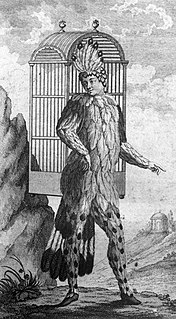 W
WEmanuel Schikaneder, born Johann Joseph Schickeneder, was a German impresario, dramatist, actor, singer, and composer. He wrote the libretto of Wolfgang Amadeus Mozart's opera The Magic Flute and was the builder of the Theater an der Wien. Peter Branscombe called him "one of the most talented theatre men of his era".
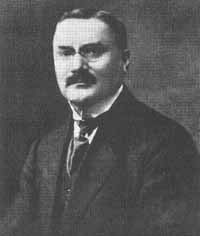 W
WAugust Stramm was a German war poet and playwright who is considered the first of the expressionists. Stramm's radically experimental verse and his major influence on all subsequent German poetry has caused him to be compared to Ezra Pound, Guillaume Apollinaire, James Joyce, and T.S. Eliot. A reserve officer in the Imperial German Army, Stramm was called up to active service at the outbreak of World War I and was killed in action on the Eastern Front.
 W
WHans-Ulrich Treichel is a Germanist, novelist and poet. His earliest published books were collections of poetry, but prose writing has become a larger part of his output since the critical and commercial success of his first novel Der Verlorene. Treichel has also worked as an opera librettist, most prominently in collaboration with the composer Hans Werner Henze.
 W
WGeorg Friedrich Treitschke was a German librettist, translator and lepidopterist. He was born in Leipzig and died in Vienna.
 W
WWilhelm Richard Wagner was a German composer, theatre director, polemicist, and conductor who is chiefly known for his operas. Unlike most opera composers, Wagner wrote both the libretto and the music for each of his stage works. Initially establishing his reputation as a composer of works in the romantic vein of Carl Maria von Weber and Giacomo Meyerbeer, Wagner revolutionised opera through his concept of the Gesamtkunstwerk, by which he sought to synthesise the poetic, visual, musical and dramatic arts, with music subsidiary to drama. He described this vision in a series of essays published between 1849 and 1852. Wagner realised these ideas most fully in the first half of the four-opera cycle Der Ring des Nibelungen.
 W
WCamillo Walzel was a German librettist and theatre director, who wrote under the pseudonym F Zell.
 W
WChristian Felix Weiße (1726–1804) was a German writer and pedagogue. Weiße was among the leading representatives of the Enlightenment in Germany and is regarded as the founder of German children's literature.
 W
WErnst von Wolzogen was a cultural critic, a writer and a founder of Cabaret in Germany.